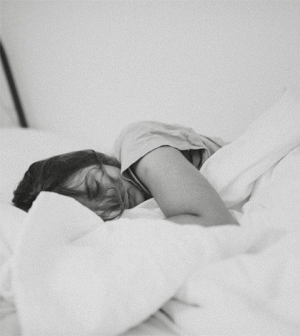- Finding Unshakable Power in a World That Wants to Pull Us ApartPosted 5 months ago
- What could a Donald Trump presidency mean for abortion rights?Posted 5 months ago
- Financial Empowerment: The Game-Changer for Women in Relationships and BeyondPosted 7 months ago
- Mental Health and Wellbeing Tips During and After PregnancyPosted 7 months ago
- Fall Renewal: Step outside your Comfort Zone & Experience Vibrant ChangePosted 7 months ago
- Women Entrepreneurs Need Support SystemsPosted 7 months ago
Simple Tips for Getting Better, Deeper Sleep This Year

By Paige A. Mitchell
Although a healthy, well-rounded diet and regular exercise can go a long way in maintaining your health and well-being, getting a good night’s sleep is just as vital. Sleep deprivation can cause many health problems, decrease your energy, and lower brain function. On the other hand, seven to eight hours of quality sleep a night can help you to exercise more effectively, increase your productivity, and ease stress and anxiety. Here are some simple tips for getting deeper, more quality sleep this year.
Avoid Blue Light in the Evening
Blue light is emitted in large amounts by smartphones, computer screens, and televisions. This type of light affects circadian rhythms and tricks your brain into thinking it’s daylight. In turn, hormones such as melatonin, that help you relax and sleep well, are reduced. Here’s how you can diminish your blue light exposure at night. Start by investing in glasses that block blue light. Find an app that blocks blue light on your devices. One good option for laptops and computers is the f.lux app. Turn off the TV and bright lights two hours before bedtime.
Provide the Right Kind of Noise
Sleeping with a white noise machine, an essential oil diffuser, or a ceiling fan can provide calming noises to help you to fall asleep and stay asleep. However, noises around your home might still impair your quality of sleep. For instance, if your HVAC system is turning on and off, it may be waking you in the middle of the night without you even realizing it.
Sleep and Wake at Consistent Times
Having a set bedtime and wake time can adjust your “body clock” in a positive way and aid in long-term quality of sleep. You might have to work with your body’s natural rhythms, however, to find the best sleeping and waking times for you. If your work/life balance allows it, try to go with what comes naturally for you.
Avoid Caffeine Late in the Day
Giving up your morning cup of coffee isn’t necessary for a good night’s sleep but cutting out caffeinated beverages after 3 pm is a good idea. Although caffeine can be helpful in small doses to increase productivity and focus, consuming it late in the day can stimulate your nervous system well into the evening, making it hard for you to fall asleep and stay asleep. Although you may “crash” from caffeine right before bed, making it fairly easy to fall asleep, the residual caffeine will nonetheless affect your quality of sleep through the night.
Optimize Your Bedroom for Comfort and Calm
In addition to providing peaceful noises while you sleep, there are other ways to make your bedroom more inviting and calming. For instance, you can change your color palette to include warm, earthy tones, such as muted greens and browns. In addition, ensure that the light emitted from your fixtures is warm and that lampshades are in soothing tones, too. Consider designating your bedroom for sleep and intimacy only. Only have technological devices in designated work spaces and leisure areas of your home.
********
 Paige Mitchell is a freelance writer who enjoys sharing practical advice on how to make our homes healthier, more functional, and most enjoyable.
Paige Mitchell is a freelance writer who enjoys sharing practical advice on how to make our homes healthier, more functional, and most enjoyable.
https://paigeamitchell.weebly.com/
https://www.instagram.com/paige.mitchell18/






